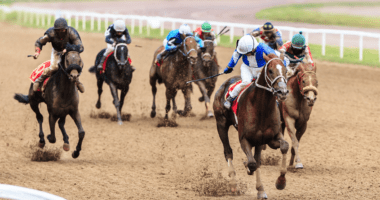Oregon Bills Could Ground Flying Lark’s Gambling Offerings Before They Even Leave The Nest

Whether the Flying Lark will open in Oregon soon isn’t really at issue. What that opening will entail is up in the air, however. If the proponents of two bills in the state legislature get their way, the maiden voyage of the Flying Lark won’t be as robust as the project’s backers want.
The bills would provide new definitions and restrictions around legal historical horse racing (HHR) machines in OR. By extension, they could at least delay the Flying Lark offering HHR gaming to customers.
Historical horse racing machines in Oregon
In 2013, Oregon enacted a law allowing gambling licensees to offer HHR play. HHR machines have grown to strongly resemble slot machines in many ways, including appearance and user interaction.
The difference between an HHR game and a traditional slot machine is the device that determines whether a play is a win and, if so, how much. Slot machines use random number generators.
HHR machines instead use the actual results of real past horse races. However, because of their external similarities to slot machines, tribal gaming interests across the country have opposed their expansion. Th
ey see such proliferation as competition.
The developer of the Flying Lark, a dining and entertainment venue in Grants Pass, insists that offering the games is essential for the business to be profitable. An application to the OR Racing Commission for a license to offer the games at the facility has been outstanding since the fall of 2021.
If two bills – both of which have the support of several tribal groups in OR – become law, that wait could continue for at least the rest of this year. The bills would also potentially disqualify many consoles.
How the bills would change HHR games in Oregon
The two bills are HB4046 and HB4047. The latter would enact specific parameters for what an HHR game is in the state. That would include:
- A ban on HHR games using “casino-associated themes” like depictions of cards or dice.
- A mandate that each HHR machine only display the race on one screen and that display encompass at least 70% of the screen.
- A requirement that HHR gameplay shows the final eight seconds of the race at a minimum.
- A rule against HHR consoles using random number generators for anything but the selection of the race.
- A stipulation that losing or winning the wager cannot be based on chance in any way except for the results of the race.
The former bill would establish a new state committee to form a report on the gambling industry in OR. It would require the committee to deliver that report to the legislature by the end of this year.
In the meantime, though, it would essentially install a moratorium on any new HHR licenses while that committee is conducting the study. Thus, it could delay the awarding of a license for the Flying Lark until at least next year.
Several OR tribal groups who offer gambling to customers in their own facilities requested the submission of these bills, like the:
- Confederated Tribes of Coos
- Confederated Tribes of Grand Ronde
- Confederated Tribes of the Umatilla Indian Reservation
- Cow Creek Band of Umpqua Tribe of Indians
- Klamath Tribes
- Lower Umpqua and Siuslaw Indians
At this point, the passage of either bill is far from a sure thing. There are thus many possibilities while the legislature is considering each proposal.
So what might happen now?
Both these bills becoming law in their current forms would force the Flying Lark to, at a minimum, have to wait longer for a license to offer HHR gaming. In addition, the Flying Lark might be hard-pressed to find machines that fit the new restrictions.
In the worst-case scenario for the developers of the Flying Lark, they might make offering HHR gaming unfeasible. That would likely happen to the delight of the tribal gaming interests in the state.
Should neither bill become law, that would probably be a precursor to the license for the Flying Lark. That might not mean the end of the dispute for the tribes, however. They would be free to request the re-filing of similar bills in future legislative sessions.
On both sides of these bills are businesses looking to protect their interests. Their enactment or the lack thereof could give one side an advantage in the competition.










